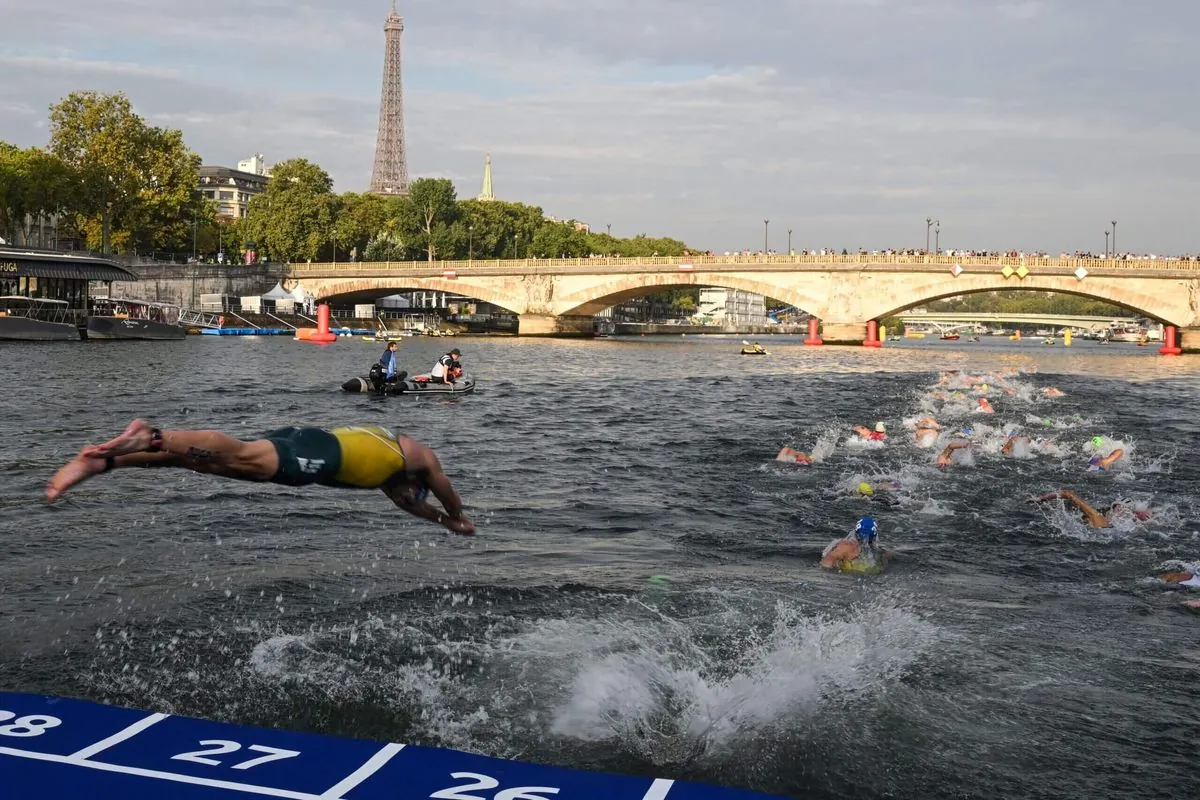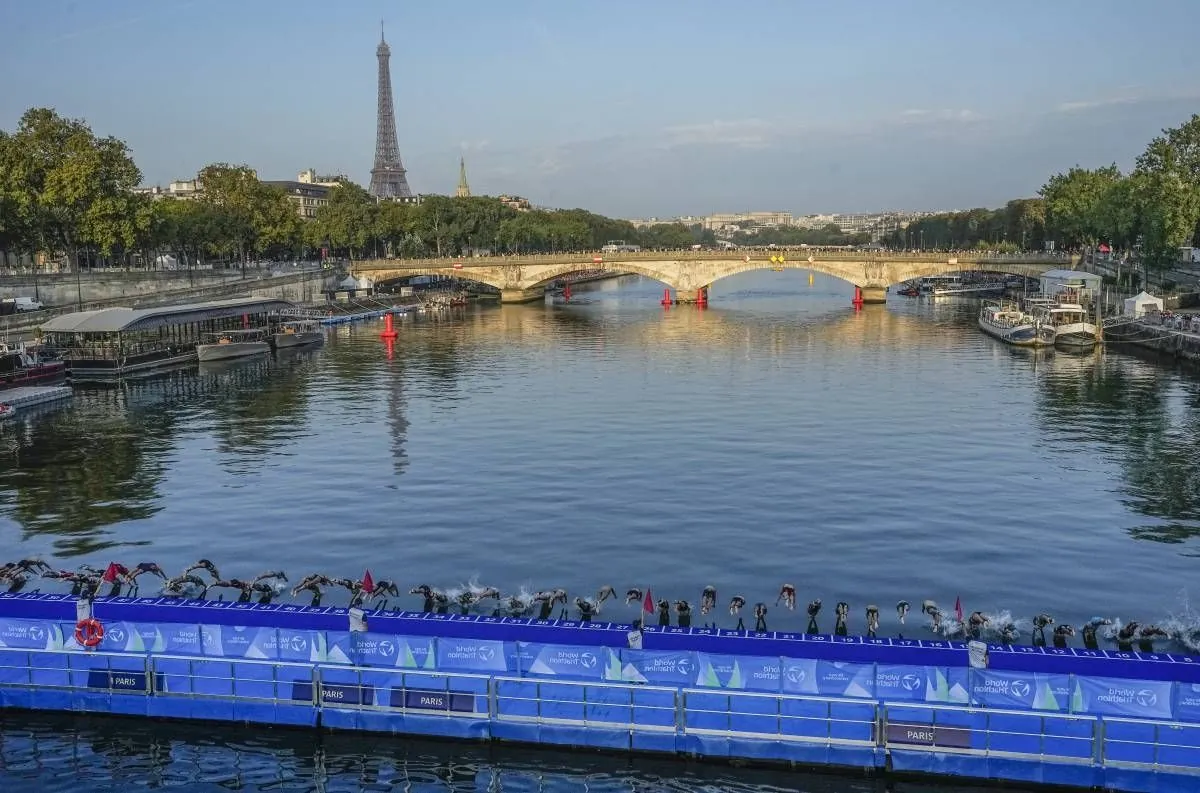Paris Olympics Face Setback as Seine Pollution Disrupts Triathlon Training
Triathlon swimming sessions in Seine cancelled due to pollution. Organizers remain hopeful for scheduled events, with contingency plans in place. Paris aims for swimmable Seine legacy.

The Paris Olympics organizers have encountered a significant challenge as they were forced to cancel triathlon swimming training sessions in the Seine river for two consecutive days. This decision came just 24 hours before the men's race, scheduled for July 30, 2023, due to increased pollution levels and strong currents caused by recent heavy rainfall.
The upcoming triathlon events hold historical significance, marking the first time since 1900 that athletes will compete in the Seine during the Olympics. Fifty-five triathletes are set to participate in the men's race, with the women's event following on July 31, 2023.
Despite these setbacks, Etienne Thobois, CEO of the Paris 2024 Organizing Committee, expressed confidence in holding the events as planned. The final decision will be made based on water samples taken 24 hours prior to each race, with athletes being immediately informed of any cancellations.

Contingency plans have been put in place, with August 2, 2023, reserved for individual races and August 6, 2023, for the mixed relay if water quality does not improve in time. Dan Hugo, Team Bermuda coach and husband of Tokyo gold medalist Flora Duffy, commented on the situation, noting the organizers' optimism for the scheduled races.
The Seine, stretching 777 km (483 mi) through France, has a rich history and significant importance. It passes through 37 departments and over 5,000 communes, serving as a vital commercial waterway. However, the river has faced severe pollution issues over the years, leading to a swimming ban in 1961 by President Charles de Gaulle.
Paris 2024 aims to leave a lasting legacy of a swimmable Seine for residents. To achieve this goal, France has invested approximately $1.4 billion in new wastewater infrastructure to reduce sewage flow into the river. City authorities have announced plans to open three public swimming sites by June 2025.
The Seine's water quality improvement efforts align with broader environmental initiatives in Paris. In 2018, the city banned cars from the river's banks to reduce pollution. The river is also home to 32 fish species and hosts annual fishing competitions, highlighting its ecological importance.
As the organizers work to ensure the success of the triathlon events, they must balance the Olympic schedule with environmental concerns and athlete safety. The situation underscores the challenges of hosting major sporting events in urban waterways and the ongoing efforts to improve water quality in the Seine.
"We are confident we can hold the event on Tuesday. The required flow of the river of one cubic metre per second has been met and we don't have an issue."
The Seine's role in the Paris Olympics extends beyond sports, reflecting the city's commitment to environmental restoration and urban development. As the world watches, the success of these events could set a precedent for future Olympic Games and urban river management.


































